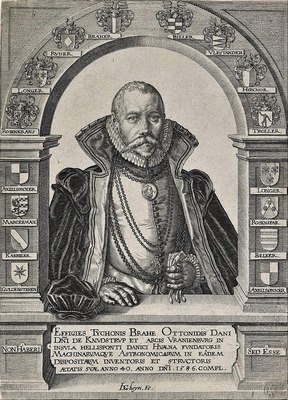Tycho Brahe continuing his reports on the Universities of Wittenberg, Rostock, Basle and Augsburg until his twentysixth year, at all times getting, and later creating, larger and devices for observing the planets. Amid these was actually a huge quadrant of brass and oak, 30 eight ft in diameter and turned by four deals with the 1st of a series of amazing tools that have been to become the speculate on the planet.
Tycho never made any epoch-producing discovery except one particular, which produced him the daddy of modern observational astronomy but that a person breakthrough is now this sort of truism for the contemporary imagination that it must be tough to see its value. The invention was that astronomy necessary exact and continuous observational data.
Tycho Brahe, Phoenix of Astronomy
It will be remembered that Canon Koppernik saved only twenty-seven findings of their own from the total Publication of Revolutions to the relaxation he relied on your data of Hipparchus, Ptolemy among others. This have been the overall training approximately Tycho. It was taken for granted that planetary furniture should be precise, in terms of probable, for calendrical and navigational purposes but aside from the minimal data required for these useful reasons, the necessity for accuracy was not at all realized.
This perspective, that is all but incomprehensible towards the modern brain, was partly because of the Aristotelian tradition featuring its stress on attributes as an alternative to quantitative measurement within that psychological platform merely a crank could be interested in preciseness for precision’s sake.
Aside from, and a lot more especially, a geometry in the skies composed of periods and epicycles did not demand a great number of, or perhaps very exact, observational data, for the simple reason that a group is defined when its center and a solitary point of its circumference are acknowledged, or, when the center is unknown, by three factors from the circumference by itself. Consequently it was actually, generally, enough to determine the placements of any world at a handful of quality points from the orbit, and then to set up one’s epicycles and deferents in the way most favourable to “conserve the phenomena”. If one tasks one’s mind back to one other aspect from the watershed, Tycho’s devotion to measurements, to fractions of moments of arc, seems as highly authentic. No wonder that Kepler known as him the Phoenix of Astronomy.
Front of Kepler
On another palm, if Tycho was in front of his time, he was just one step in front of Kepler. We have seen how Kepler was pining for Tycho’s findings, for precise data on indicate miles and eccentricities. A hundred years earlier, Kepler would probably have relaxed on the laurels of his option of the cosmic puzzle without bothering about those tiny arguments with noticed details but this metaphysical cavalier-frame of mind towards information was on the wane one of the superior minds of the time. Sea the navigation, the raising preciseness of magnetic compasses and timepieces, and also the basic improvement in technological innovation developed a new climate of regard for hard simple fact and actual measurement.
Hence, for example, the discussion between your Copernican and Ptolemaic solutions was no more sought by theoretical disagreements by yourself both Kepler and Tycho de Brahe independently made a decision to allow play with it become the arbiter, and attempted to determine by way of measuring whether a stellar parallax existed or perhaps not.
One reason for Tycho’s pursuit of accuracy and precision was, the truth is, his wish to determine the applicability in the Copernican process. But this became perhaps rather the rationalization of the much deeper urge. Careful determination, precision for precision’s reason was for him a type of worship.

His initial fantastic expertise had been the awestricken understanding that astronomic situations could possibly be exactly forecasted his secondly was from the opposing kind, On 17 August, 1563, with the ages of 17, while Vedel was sleeping, he realized that Saturn and Jupiter were so shut together concerning be almost indistinguishable.
He searched up his planetary tables and found out that the Alphonsine tables were a whole month in mistake in regards to this function, and also the Copernican desks by a few days. This became an intolerable and shocking status of matters. If the stargazers, of whose reduced business his household so disapproved, could not do greater, permit a Danish nobleman show them how a suitable work is carried out.

